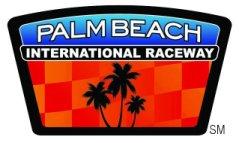Nestled in the picturesque Pocono Mountains of Pennsylvania, the Pocono Raceway stands as a prominent beacon in the world of NASCAR racing. Known for its unique triangular layout and breathtaking scenery, this iconic venue has become a staple in the racing calendar, attracting fans and drivers alike. With sweeping turns and exhilarating straightaways, Pocono presents a unique set of challenges that test the mettle of even the most seasoned competitors. As engines roar and the excitement in the air becomes palpable, the Pocono Raceway transforms into a vibrant spectacle, blending athleticism, strategy, and the thrill of speed. In this article, we will delve into the history, significance, and unique features that make NASCAR at Pocono a captivating experience for fans and participants, showcasing why this picturesque racetrack continues to hold a special place in the hearts of motorsport enthusiasts.
Table of Contents
- Exploring the Unique Challenges of Pocono Raceway
- Fan Experience at Pocono: Tips for an Unforgettable Visit
- Understanding the Impact of Weather on Racing Performance
- A Closer Look at Poconos Legendary Drivers and Their Strategies
- Q&A
- Insights and Conclusions
Exploring the Unique Challenges of Pocono Raceway
The Pocono Raceway, with its unique triangular layout, presents a set of distinct challenges that test the true mettle of NASCAR drivers. Unlike traditional ovals, the track features three different turns—each with varying degrees of banking and radius. This not only demands adaptability from drivers but also requires teams to fine-tune their setups meticulously. Key factors contributing to the challenges of Pocono include:
- Turn Characteristics: Drivers must master the art of navigation, as each turn requires a unique approach. Turn 1 is a daunting 14 degrees of banking, while Turn 2, often considered the most difficult, is flat at just 6 degrees.
- Weather Variability: Given its location in the mountains, weather conditions can change rapidly, impacting tire performance and strategy.
- Long Straightaways: The lengthy straights allow for high speeds but also create opportunities for drafting—strategizing becomes crucial here.
Moreover, the elevation changes throughout the course add another layer of complexity to the racing experience. As cars transition between higher and lower elevations, the shifts in downforce can lead to unpredictable handling characteristics. This is particularly significant during late-race scenarios when drivers battle fatigue, making the ability to maintain focus and control paramount. Illustrated in the table below are some additional attributes of Pocono Raceway contributing to its challenging nature:
| Attribute | Description |
|---|---|
| Track Length | 2.5 miles |
| Turns | 3 unique shapes and banking |
| Surface Type | Asphalt with varying grip |
| Race Formats | Sprint, stage races, and long distances |
Fan Experience at Pocono: Tips for an Unforgettable Visit
Attending a race at Pocono is not just about watching cars zoom by; it’s an immersive experience that can be enhanced with a bit of planning. To make the most of your visit, arrive early to soak in the atmosphere. Take a stroll around the fan zone, where you can find merchandise stalls and interactive displays. You might even run into your favorite driver at a meet and greet! Additionally, be sure to explore the food options—from savory barbecue to sweet treats, there’s something for everyone. Don’t forget to hydrate and wear sunscreen, as the sun can be intense while awaiting the start of the race.
Consider bringing a few essentials to elevate your time at the track. Here are some must-haves for your race day:
- Comfortable Seating: A portable seat cushion can make long hours more enjoyable.
- Noise-Cancelling Headphones: These can help shield you from the roar of the engines and allow for conversation.
- Binoculars: Get up close to the action, even from a distance.
- Water Bottle: Staying hydrated is crucial.
- Camera: Capture memorable moments with your friends and family.
Lastly, don’t forget to familiarize yourself with the schedule of events before you arrive. From practice sessions to qualifying rounds, each segment offers excitement and unique experiences. Here’s a quick overview of typical race day activities:
| Time | Activity |
|---|---|
| 10:00 AM | Gates Open |
| 11:00 AM | Practice Sessions |
| 1:00 PM | Driver Introductions |
| 2:00 PM | Race Start |
Understanding the Impact of Weather on Racing Performance
The weather conditions at Poconos can dramatically influence racing performance, shaping everything from tire wear to driver stamina. Temperature plays a crucial role; on hotter days, rubber heat build-up can lead to degradation, while cooler temperatures may enhance grip but risk causing tires to lose optimal contact with the track. Additionally, humidity levels can alter air density, impacting engine performance by affecting how efficiently air flows into the engine. Understanding these variables allows teams to strategize effectively, considering whether to adjust the tire pressure or make changes to the car’s setup to optimize performance based on weather conditions.
Rain and wind are other significant factors that can turn the tide during a race at Poconos. When rain strikes, teams must have a solid wet-weather plan, which includes selecting the right tires and adjusting driving techniques to manage reduced visibility and traction. Wind can influence a car’s handling and speed, particularly on the straights and at the turns, presenting additional challenges for drivers striving to maintain tight lines. Ultimately, a well-prepared team that anticipates these weather-related challenges can gain a competitive edge, illustrating how a racing strategy informed by the forecast can make all the difference.
A Closer Look at Poconos Legendary Drivers and Their Strategies
The Poconos have witnessed some of the most iconic drivers in NASCAR history, each bringing their own unique flair to racing. Legends like Dale Earnhardt and Darrell Waltrip have left an indelible mark on this Pennsylvania track, showcasing not just speed but intricate strategies that define their legacies. Aggressive overtaking and masterful control during late-race cautions are essential skills honed by these drivers to capitalize on any advantage. Their ability to read the race and anticipate the moves of their competitors often distinguishes the greats from the rest. Whether it’s by maintaining impeccable tire management or executing a perfectly timed pit stop, these strategies have been crucial in securing victories at Pocono.
The landscape of the NASCAR circuit at Pocono is unique, characterized by its tri-oval configuration and varying elevation changes that require drivers to adapt quickly. To successfully navigate these challenges, legendary drivers have employed strategies like drafting, elevation mastery, and corner entry precision. They’ve learned to leverage the distinct characteristics of the track, using techniques such as high-speed corners and straightaways to gain momentum. The table below highlights some legendary drivers and their notable strategies that have etched their names into Pocono’s racing history:
| Driver | Notable Strategy |
|---|---|
| Dale Earnhardt | Masterful late-race restarts |
| Darrell Waltrip | Precision in corner entry and exit |
| Jeff Gordon | Optimize pit strategy for track position |
| Jimmy Johnson | Tire conservation for longer runs |
Q&A
Q&A: The NASCAR Experience at Pocono Raceway
Q: What is Pocono Raceway known for in the NASCAR world?
A: Pocono Raceway, often referred to as “The Tricky Triangle,” is known for its unique three-turn layout and its challenges, making it a favorite stop on the NASCAR schedule. With its long straightaways and varying degrees of banking, it tests both driver skill and vehicle performance.
Q: How did Pocono Raceway come into existence?
A: Pocono Raceway was opened in 1971 by Dr. Joseph Mattioli and has since evolved into a premier motorsports venue. The track was originally designed to be more of an open-road course but transformed into a thrilling oval that has hosted a variety of racing series, including its flagship NASCAR events.
Q: What makes the racing at Pocono different from other tracks?
A: The unique triangular shape sets it apart. Each turn offers a completely different challenge due to its distinct angles and banking. Drivers must master a diverse range of driving techniques to navigate each section effectively, unlike more traditional oval tracks.
Q: How does weather impact racing at Pocono?
A: The Pocono region is known for its unpredictable weather, which can vary greatly even within a single race day. Rain can lead to delays, and extreme heat can affect tire performance. Teams must be adept at making quick strategic decisions based on the ever-changing conditions.
Q: What kind of audience does Pocono Raceway attract?
A: Pocono draws a diverse crowd, from die-hard NASCAR fans to families looking for an adrenaline-packed weekend. The scenic backdrop of the Pocono Mountains adds to the appeal, creating a festival atmosphere with something for everyone, including fan experiences and activities outside the racetrack.
Q: Are there special events besides the main NASCAR races at Pocono?
A: Yes, Pocono Raceway hosts a variety of events throughout the year, including IndyCar races, sports car races, and even concerts. The venue also offers opportunities for fans to participate in driving experiences, ensuring that the excitement extends beyond just NASCAR weekends.
Q: What are some must-see features at Pocono Raceway for first-time visitors?
A: First-time visitors should check out the drivers’ garages, where they can catch a glimpse of the teams preparing for the race. Additionally, the grandstand views provide an excellent vantage point to see the action unfold on track. Various fan zones offer interactive displays, merchandise booths, and food vendors that capture the spirit of NASCAR culture.
Q: How does Pocono Raceway contribute to the local economy?
A: The races at Pocono Raceway significantly boost the local economy, bringing in tens of thousands of visitors who stay in hotels, dine in local restaurants, and shop at area businesses. The influx of visitors creates jobs and stimulates investment in the community, making it a vital part of the local economy.
Q: What can fans expect in the future for NASCAR events at Pocono?
A: NASCAR is constantly evolving, and Pocono Raceway is committed to enhancing the fan experience. Upcoming innovations may include improved technology for race monitoring, expanded fan interaction opportunities, and continued efforts to make races more exciting and accessible to all fans, ensuring that the legacy of ”The Tricky Triangle” continues for generations to come.
Insights and Conclusions
As the engines roar to life and the green flag waves, the Pocono Raceway stands not just as a track, but as a unique hallmark of the NASCAR experience. With its distinctive triangular shape and the breathtaking backdrop of the Pocono Mountains, the venue offers fans and drivers alike an unmistakable blend of speed, strategy, and scenic beauty. Whether it’s the thrill of tight turns or the exhilaration of a hard-fought finish, racing at Pocono encapsulates the very essence of motorsport. As we look ahead to future races, it’s clear that the legacy of NASCAR at Pocono will continue to evolve, inviting new generations of fans to witness the heart-pounding spectacle. In this intersection of tradition and innovation, Pocono Raceway remains a gem in the NASCAR crown, eagerly awaiting the next chapter in its storied history.



